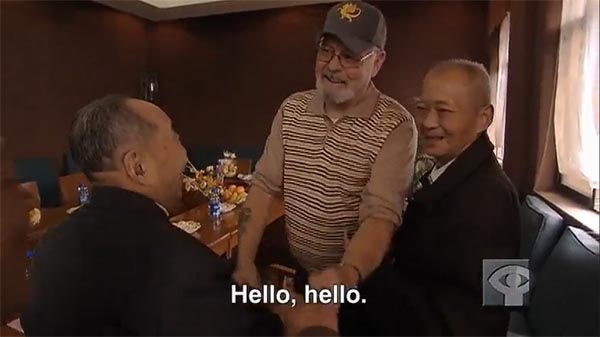

Hao's interview is part of the 2006 documentary film They Chose China, focusing on the fateful decision made by the 21 American POWs to go to China at the end of the war. Director Wang Shuibo unearthed rare video footage showing POWs of various nationalities competing in the Inter Camp Olympics, organized by the Chinese camp authority in November 1952 and in which about 500 POW athletes including Adams took part.
Meanwhile, Adams volunteered as a go-between, which allowed him to make suggestions to the camp authority on behalf of his fellow POWs. These included improving camp sanitation and adding space for sport, recreation and worship. The Chinese accepted them all, Adams said.
Adams, one of the POW signatories of the Stockholm Appeal, which called for an end to hostilities, also actively took lectures given by English-speaking Chinese camp instructors, some of whom had spent time in the US. One of their topics was world peace and another racism.
Later, to widespread belief in the US that the 21 defectors had been brainwashed by the Chinese, Adams replied, "How can it be brainwashing if someone is telling you something you already know is true?"
When the time came-the armistice agreement signed by the two sides in June 1953 gave all prisoners the right to choose where they wanted to be repatriated-Adams, who was repeatedly threatened and openly called "nigger" by some white POWs at the camp, chose China, and thus became one of the three black American POWs to do so.
"None of the 21 was political, with the possible exception of James Veneris, whose parents had been Communists in their native Greece," he said.
The stories-the pain, frustration and inner struggle felt by the man both at home and 11,000 kilometers from it-trickled down to Della Adams over many evenings and many more bottles of Old Grand Dad whiskey. "I was interested in why he went to China and why he came back, decisions that ultimately impacted my life," she said.